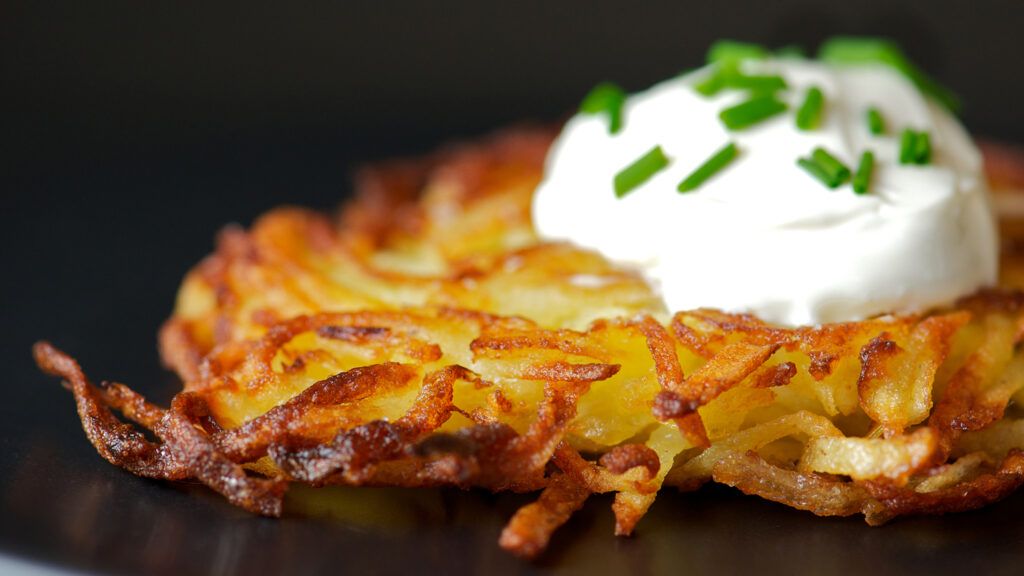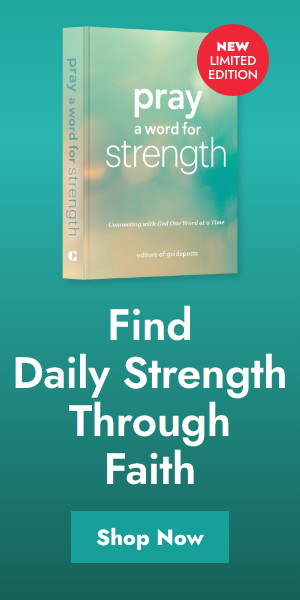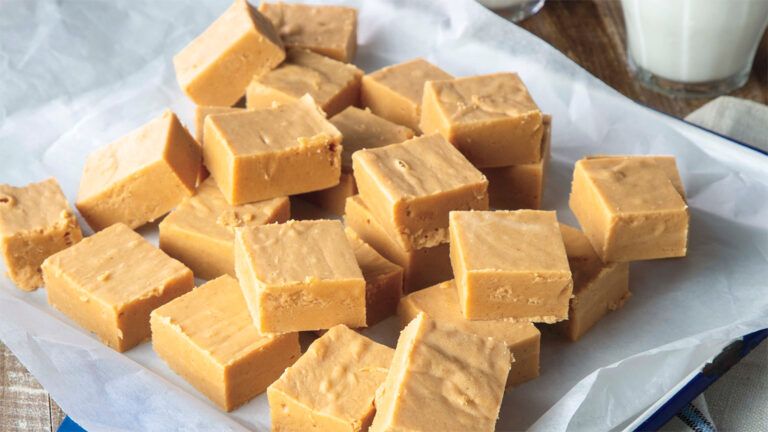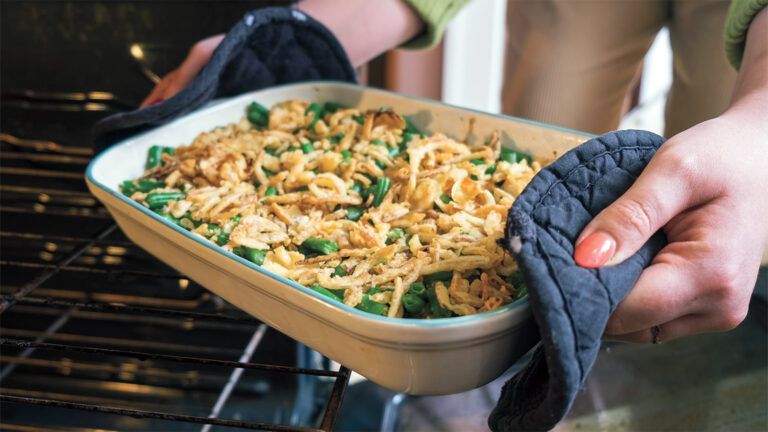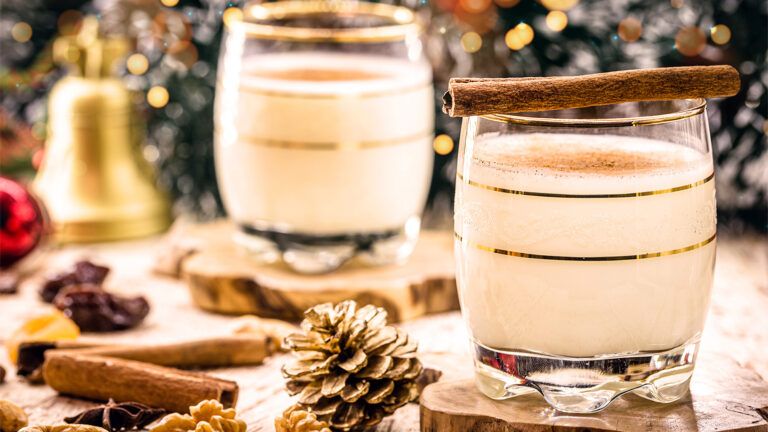“Are they done yet?” I’d ask my late great-grandmother, whom I called Bubbe, on the first day of Hanukkah. She prepared latkes, a type of potato pancake made just for the holidays.
“Almost, bubbula,” she’d call back. I’d watch her hands deftly glide across the potatoes as she grated and chopped. “Someday you’ll make these,” Bubbe would declare, handing me that first latke from the frying pan.
I grew up in the town of Hingham, Massachusetts, in a dual-faith home (my mother is Jewish and my father, Catholic). We celebrated the traditions of both faiths, decorating our tree with angels, Santas and reindeer and menorahs and bagels. “Be thankful, Stacey, you have so much to celebrate,” Bubbe would say. She taught me that holidays are for surrounding yourself with family, friends and good food.
But in 2005 I wasn’t sure how to do that. I was far from home. Far from Bubbe’s delicious latkes. Thonburi, Thailand, to be exact. My fiancé, Dan, and I were there to teach English at a boys’ Catholic school. Our fellow teachers came from all over the globe—Australia, China, England, South Africa and the Philippines. Dan and I visited temples, wore Thai clothing and adopted the Thai saying, “Same, but different.” We felt at home, but part of me couldn’t imagine Hanukkah without Bubbe’s latkes. Same, but different. What did that mean for the holidays?
Our colleagues invited us to help decorate the school grounds for Christmas. We swathed the outdoor halls and courtyards in red and green garlands, and festooned the trees in white lights. Christmas carols blared over the loudspeaker. A papier maché Santa Claus was erected at the front gate of the school. It looked spectacular. But something was missing. “We need latkes!” I told Dan. “Let’s host a Hanukkah party for the teachers.” I called my mom in Massachusetts. “I need Bubbe’s latkes recipe,” I said.
She was excited. “I’ll send over some Hanukkah decorations,” she said. Several days later the box arrived—just in time for the first day of Hanukkah. We decked out the teachers’ meeting room with dreidels, Stars of David, menorahs and strings of white lights. On the table we had napkins and plates that read “Happy Hanukkah!”
Dan and I headed to a small Western grocery store in town. We hit the jackpot! They had all the ingredients. Back in the kitchen, we grated, chopped and mixed. Just one thing was missing: the frying pan. Dan pulled an electric wok from a shelf. “Think this’ll work?” Thais prepare almost all their dishes over an open flame with a wok. “Let’s try it!” I said. It worked.
The aroma soon lured teachers from all over the complex. Suddenly I wasn’t the little girl spying on her bubbe in the kitchen anymore, but a woman passing her family’s traditions along. “What is that delicious smell?” asked a teacher from China. Dan and I could hardly cook enough latkes to please the crowd—they devoured them with abandon and peppered us with questions too. “What is Hanukkah?”
“Hanukkah, also known as the Festival of Lights, is a Jewish holiday that lasts for eight days,” I explained. “It commemorates the rededication of the Temple in Jerusalem. Each day of the holiday a candle is lit in a menorah until on the eighth day all the candles are aglow. The candles represent the miracle that occurred when the eternal light burned for eight days with just one small jar of holy oil. There are gifts and special foods like the latkes you’re eating.”
I looked around the room and saw people from different cultures celebrating together. The spirit of the holidays can unite people regardless of their faith. I was far from family—but with Bubbe’s latkes and friends to share them with, it felt just like home. Same, but different.
Try Bubbe’s Latkes!
